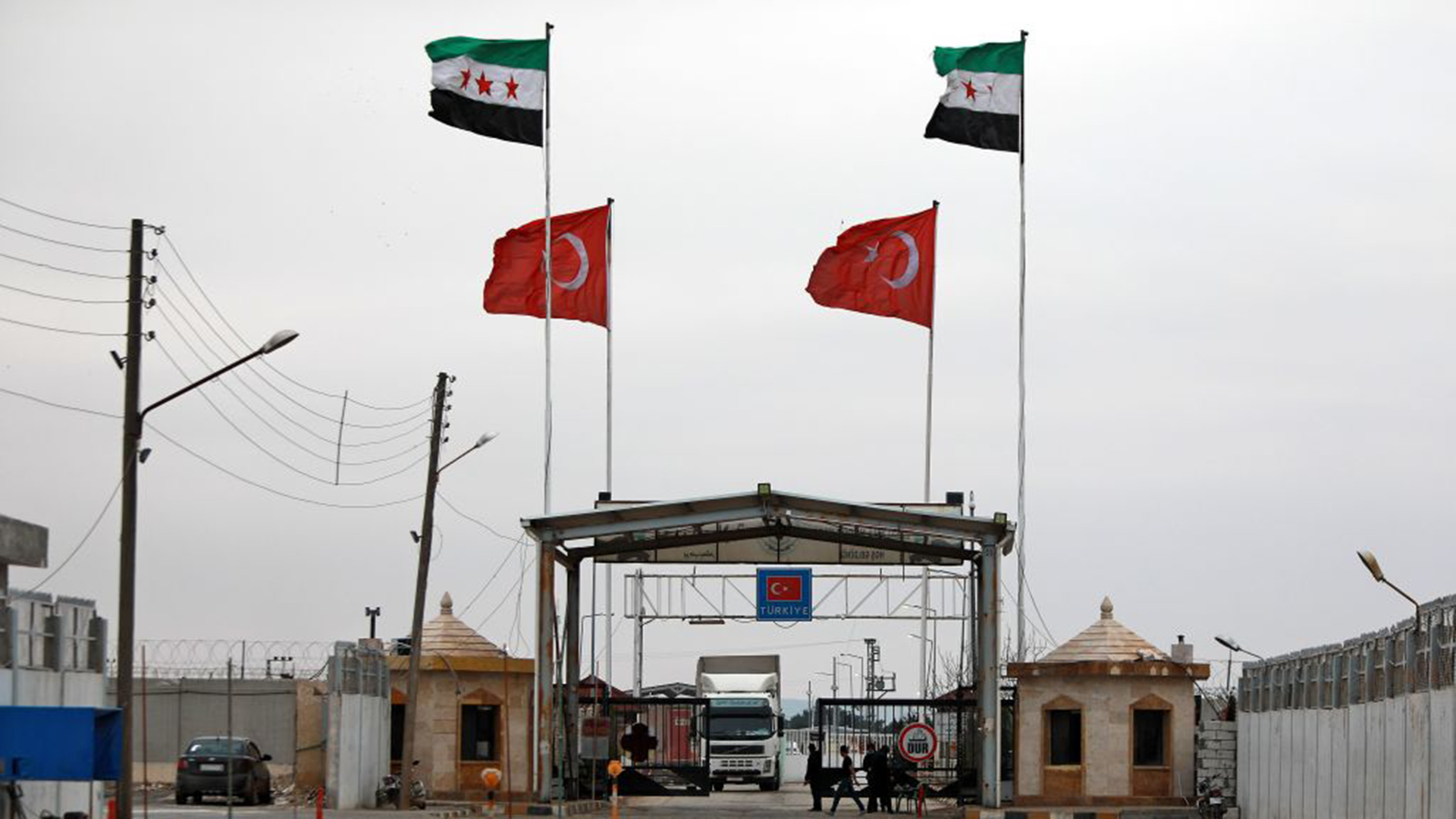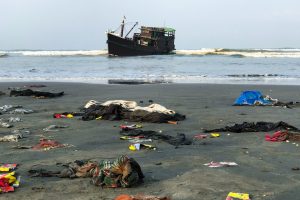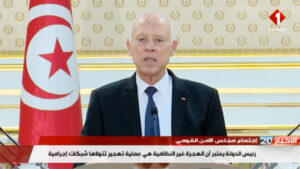The Syrian border aid mechanism is a lifeline for millions of Syrians in opposition areas.
The New Arab Staff
NGOs have called on the UN Security Council to back another extension to a cross-border aid mandate to provide humanitarian workers with access to northern Syria.
UNSC Resolution 2642 will expire on Tuesday with council members negotiating another extension to the current six-month cross-border mandate, a process that Russia has repeatedly threatened to veto.
The UN, its agencies, and partners – including UNICEF, WHO, and WFP – provide assistance to around 2.7 million Syrians a month and have urged UNSC to extend the mandate.
Failure to do so would end the UN Monitoring Mechanism (UNMM) and halt the verification of humanitarian cargo via Bab Al-Hawa, the only border crossing from Turkey into northern Syria leading to catastrophic consequences for Idlib’s 4.1 million population, around 75 percent reliant on the UN for basic support.
“Without UN cross-border operations, millions of people, especially those displaced for years and multiple times, will not have access to food and shelter; to help in coping with harsh winter conditions; to the surveillance, treatment and testing capacities needed to contain cholera; to safe water; and to protection from gender-based violence,” said ajoint statement signed by UN humanitarian chiefs.
“Our position remains consistent and clear: Humanitarian assistance and protection services must always be allowed to reach those who need it through the safest and most direct and efficient route.”
A no vote from Russia during the peak of winter could lead to a humanitarian disaster on an unimaginable scale in Idlib, where aid workers are already battling cholera, Covid-19, and freezing temperatures.
“Every winter, we witness extreme winter conditions such as snowstorms and sub-zero temperatures driven by climate change, which overwhelms the communities we work with,” said Tanya Evans, Syria Country Director at the International Rescue Committee (IRC).
“This year, the humanitarian situation is worse than ever even before winter has set in. Fuel and food prices have skyrocketed, making them unaffordable for the majority of people. At the same time, funding for humanitarian actors is shrinking.”
The Syria Campaign has also called for Moscow to put aside politics and vote for an extension, which comes amid heightened tensions between Russia and other council members such as the US, France, and the UK.
“Once again the fate of civilians in Syria lies in the hands of Russia which has displayed a chilling indifference to their humanitarian needs and has repeatedly used aid as a bargaining chip at the UN,” the Syria Campaign said.
“Members of the UN Security Council must not allow Russia to continue to use the lives of civilians as pawns in its cruel political games. The international community must establish other ways to guarantee that life-saving aid will continue to reach those in need.”
Kurdish-controlled areas of northern Syria have already been hit by Russian and Chinese vetos to cross-border aid, with humanitarian supplies entering via Damascus, a process that the Syrian regime has made difficult on numerous occasions.
Nada Al-Rashed, a volunteer with The White Helmets, Syria’s Civil Defence, highlighted the devastating consequences for Idlib if it was forced to rely on the Syrian regime to distribute aid fairly.
“The idea that the Syrian regime could be relied on to distribute aid after using humanitarian assistance as a weapon of war is not just unacceptable, it is an insult to victims and all civilians,” he said in a statement.
“People in the northwest should be thinking about how to rebuild Syria, ways to bring the regime to justice or helping displaced people living in camps to rebuild their homes destroyed by Russian and Syrian attacks… having access to these necessities should be a basic human right, not something up for debate at the UN Security Council.”




